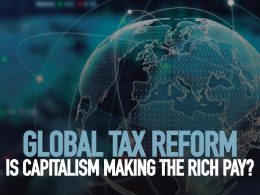In the run into the election, Sinn Fein received a significant boost by the election of the articulate Pearse Doherty, the migration South of Gerry Adams d midst the massive anger in society, its left “posturing” in opposition to the IMF/EU deal, calls for the burning of the bondholders and opposition to austerity saw them take a significant leap from five to 14 TDs.
With Fine Gael and Labour continuing where Fianna Fail left off, Sinn Fein look set to make more gains potentially setting them up to be coalition partners in a future, if not the next government.
Sinn Féin are viewed by the majority of those who voted for them as representing an alternative to the three traditional parties of the Southern Irish establishment. The hostility demonstrated to Sinn Féin by the right-wing media further fuels the idea that they represent a threat to the interests of the rich. No doubt there are rank-and-file Sinn Féin activists who genuinely hold these views.
However, it is important to look beneath the veneer of radicalism and examine if there is a real basis to Sinn Féin’s claim to be the left opposition to the new government compared to the United Left Alliance to which the Socialist Party belongs.
Take for example the recent comments of Sinn Féin’s Mitchell McLoughlin who criticised the right-wing SDLP in the North for opposing the cuts being handed down by the Westminster government saying that by contrast they should be more like Sinn Féin and “begin to make constructive contributions to Executive attempts at minimising the effects of the Tory cuts on frontline services and the vulnerable in society”, Irish Times, 8 March 2011.
This position is a direct parallel of the position being adopted by the Labour Party south of the border. As part of the government, Sinn Féin, acting as Green Tories, cannot escape sharing political responsibility for the £4 billion cuts being implemented in the North – cuts which they have voted for and defended and which their Ministers have “pragmatically” agreed to implement.
In a debate with Joe Higgins on Pat Kenny’s radio show on RTE during the election campaign, Sinn Féin’s Mary Lou McDonald defended her Northern colleagues’ position saying that they had to work within Westminster spending limits. Again, the same excuse is used by the Labour Party and the rest of the political establishment in the South regarding the EU/IMF deal.
Politically, Sinn Féin hold to the illusion that solutions can be achieved within the framework of capitalism and in their manifesto, while they call for expanded public works and public services, they essentially see the state playing a support role for the private sector.
Likewise when it comes down to the crunch of the need for militant struggle by workers, Sinn Féin abstain from any debate on the sell outs of the trade union leaders. They have not taken a clear position on the wage deals or the likes of the Croke Park deal which sold out workers nor seriously advocated as strategy of strike action by workers against the attacks on their pay and conditions.
The credibility of Sinn Féin will be tested in the heat of the struggles that emerge in the years ahead. Unlike the Socialist Party, Sinn Féin have a poor record in advocating and organising struggle on the ground like we saw in the past with the water charges and bin charges. The spectacle of emerging struggle in the North against Sinn Féin / DUP administered Tory cuts will somewhat expose Sinn Féin south of the border among those looking for a real radical left alternative.
In the South, Sinn Fein’s political trajectory isn’t towards struggle but to the right and into coalition government with the establishment parties.












